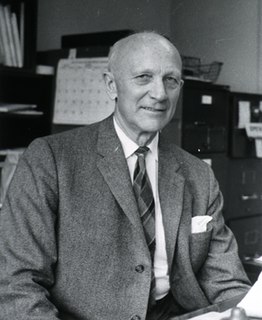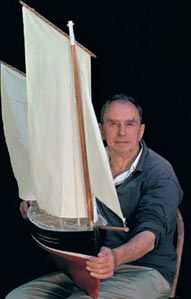A Quote by John Steinbeck
The design of a book is the pattern of a reality controlled and shaped by the mind of the writer. This is completely understood about poetry or fiction, but it is too seldom realized about books of fact. And yet the impulse which drives a man to poetry will send another man into the tide pools and force him to try to report what he finds there.... It would be good to know the impulse truly, not to be confused by the 'services to science' platitudes or the other little mazes into which we entice our minds so that they will not know what we are doing.
Quote Topics
About
Another
Another Man
Be Good
Book
Books
Confused
Controlled
Design
Doing
Drives
Entice
Fact
Fiction
Finds
Force
Good
Him
Impulse
Know
Little
Man
Mazes
Mind
Minds
Other
Our
Pattern
Platitudes
Poetry
Reality
Realized
Report
Science
Seldom
Send
Services
Shaped
Tide
Too
Truly
Try
Understood
Which
Will
Would
Would Be
Writer
Related Quotes
A man's bookcase will tell you everything you'll ever need to know about him," my father had told me more than once. "A businessman has business books and a dream has novels and books of poetry. Most women like reading about love, and a true revolutionary will have books about the minutiae of overthrowing the oppressor. A person with no books is inconsequential in a modern setting, but a peasant that reads is a prince in waiting.
Fatalism, whose solving word in all crises of behavior is All striving is vain, will never reign supreme, for the impulse to take life strivingly is indestructible in the race. Moral creeds which speak to that impulse will be widely successful in spite of inconsistency, vagueness, and shadowy determination of expectancy. Man needs a rule for his will, and will invent one if one be not given him.
When I read the script [of Good Kill], it read like a science fiction film. And Andrew [writer/director Andrew Niccol] is known for sci-fi. But when I spoke to him, he said this picture was 100% factual, which blew my mind. I realized then how little I knew about the drone program. And I felt that, if I knew so little about it, there must be others who should be educated about what's going on.
What the world wants, what the world is waiting for, is not Modern Poetry or Classical Poetry or Neo-Classical Poetry - but Good Poetry. And the dreadful disreputable doubt, which stirs in my own skeptical mind, is doubt about whether it would really matter much what style a poet chose to write in, in any period, as long as he wrote Good poetry.
Now the basic impulse behind existentialism is optimistic, very much like the impulse behind all science. Existentialism is romanticism, and romanticism is the feeling that man is not the mere he has always taken himself for. Romanticism began as a tremendous surge of optimism about the stature of man. Its aim - like that of science - was to raise man above the muddled feelings and impulses of his everyday humanity, and to make him a god-like observer of human existence.
There's no real objection to escapism, in the right places... We all want to escape occasionally. But science fiction is often very far from escapism, in fact you might say that science fiction is escape into reality... It's a fiction which does concern itself with real issues: the origin of man; our future. In fact I can't think of any form of literature which is more concerned with real issues, reality.
I have spent a good many years since?too many, I think?being ashamed about what I write. I think I was forty before I realized that almost every writer of fiction or poetry who has ever published a line has been accused by someone of wasting his or her God-given talent. If you write (or paint or dance or sculpt or sing, I suppose), someone will try to make you feel lousy about it, that's all.
I have confused ideas of deity, heavily influenced by mind-altering years of reading science fiction, that do not often trouble me, but one thing I know for certain, and have known since the age of five or six, is that I really can't stand the God of Abraham. In fact, I consider him to constitute the pattern to which every true asshole I have ever known in my life has pretty well conformed.
In spite of all these disquieting triumphs in the field of natural science, it's astonishing how little man has learned about himself, and how much there is to learn. How little we know about this brain which made social evolution possible, and of the mind. How little we know of the nature and spirit of man and God. We stand now before this inner frontier of ignorance. If we could pass it, we might well discover the meaning of life and understand man's destiny.
The truly educated man is not a man who knows a bit of everything, not even the man who knows all the details of all subjects (if such a thing were possible): the “whole man” in fact, may have little detailed knowledge of facts and theories...but he will be truly in touch with the centre. He will not be in doubt about his basic convictions, about his view on the meaning and purpose of his life. He may not be able to explain these matters in words, but the conduct of his life will show a certain sureness of touch which stems from this inner clarity.
I do not see how a man can work on the frontiers of physics and write poetry at the same time. They are in opposition. In science you want to say something that nobody knew before, in words which everyone can understand. In poetry you are bound to say ... something that everyone knows already in words that nobody can understand.
Commenting to him about the poetry J. Robert Oppenheimer wrote.
Speaking of people I had to exclude: Hank Williams. which is to say, songs are part of lyric poetry in my book, my thinking. In fact they are the urgent element of poetry in our time, they carry the most emotion for the most people in our culture. everyone LOVES poetry, because we all love (one form or another) of rock and roll (be it folk to emo to rap). It's all rock and roll and all lyric poetry.

































